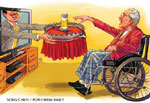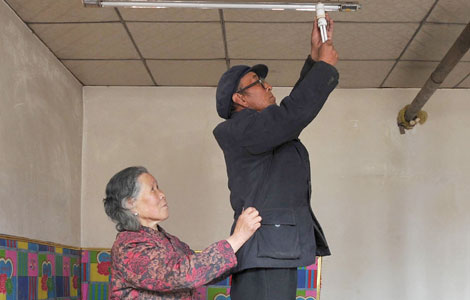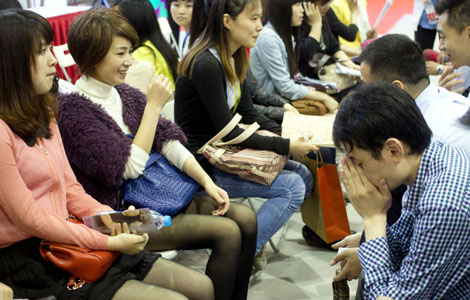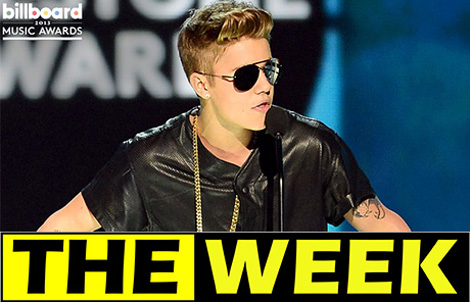Party's self-regulation
Updated: 2013-05-29 08:16
(China Daily)
|
|||||||||||
With the vow to shut power in a cage of systems, as well as targeted rules tailored to specific societal concerns, the new leaders of the Party have made an impressive start in their war on corruption.
But it remains to be seen whether or not, in what manner and to what extent they can deliver what is anticipated.
For those with their eyes on outcomes, there may be no better proof of the pledge to "strike both tigers and flies" than seeing more and higher-ranking officials investigated on corruption charges. But others may be more anxious to see what the cage will be.
The two documents regulating intra-Party rule-making published on Monday, along with the order that staff members of the Party's disciplinary and supervisory organs forsake "all kinds of membership cards received in various names" by June 20, give the impression that they aspire to proceed on both fronts.
While demonstrating a respectable political will against one of the most hated social vices, such an approach entails a lot more than self-regulation.
As we all know corruption takes diverse forms, and those forms evolve. The ban on extravagant banquets paid with taxpayer money has driven such feasts into stealth mode.
Unless the watchdogs and rule-makers work as hard as the dodgers and breakers, it is extremely difficult to win such protracted games of hide and seek.
From the cage-building perspective, the two documents we saw on Monday were only the first step toward introducing order into intra-Party rule-making, which is essentially a matter of how the Party wants to manage its internal affairs.
However, compared with the previous stipulation that the Party should "make public some intra-Party rules and regulations", the new clause that makes publication of intra-Party rules a principle and nonpublication an exception, is a noteworthy change. One that is conducive to transparency and in conformity with the promise to subject itself to public scrutiny.
Given its consciousness of the life-or-death significance of the anti-graft campaign, the Party cannot afford not to meet the anticipation that has been aroused.
The most reassuring signal we have received as yet is the statement from Wang Qishan, the Paty's chief corruption buster, that the membership ban is only a "prelude".
Related Stories
CPC to sharpen intra-Party management 2013-05-28 07:56
CPC issues 'legislation law' of Party 2013-05-27 21:19
Campaign to strengthen ties between CPC and public 2013-05-22 02:38
Today's Top News
Foreign minister: Japan 'lack of common sense'
All parties must work for Middle East peace
Chinese firm signs satellite deal
President Xi and LA mayor aim for stronger ties
Wedding banquets go smoke-free
China pledges solar action
Xinjiang official decries extremism
BJ expatriates in a smoggy dilemma
Hot Topics
Lunar probe , China growth forecasts, Emission rules get tougher, China seen through 'colored lens', International board,
Editor's Picks

|

|

|

|

|

|





